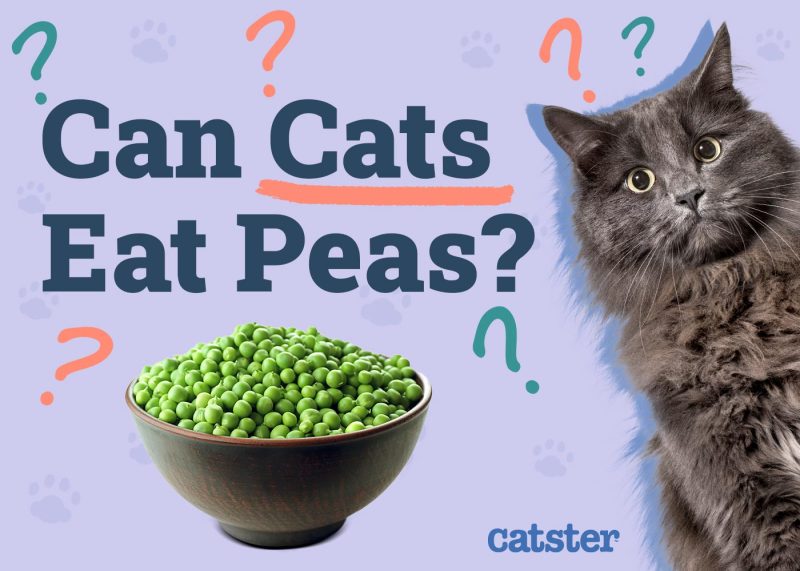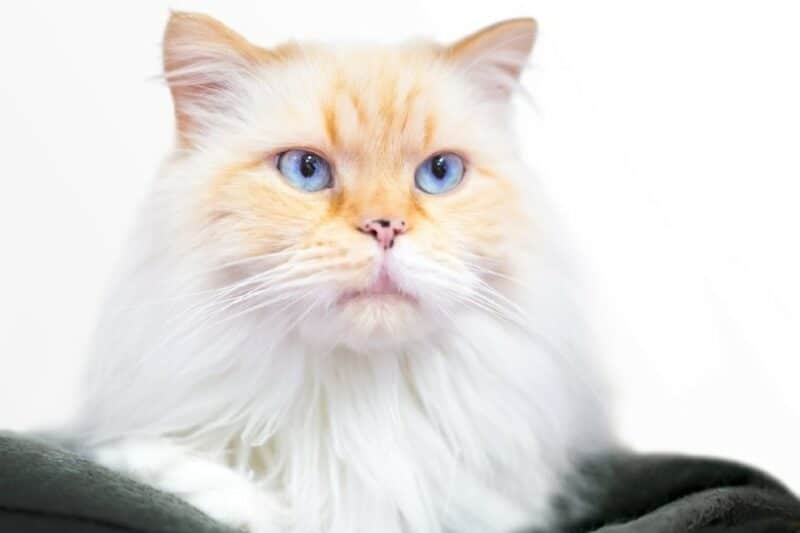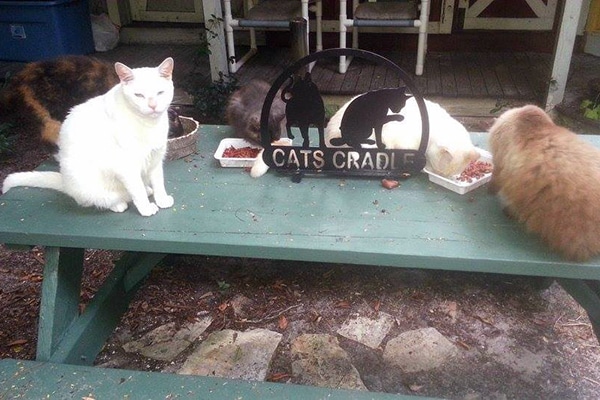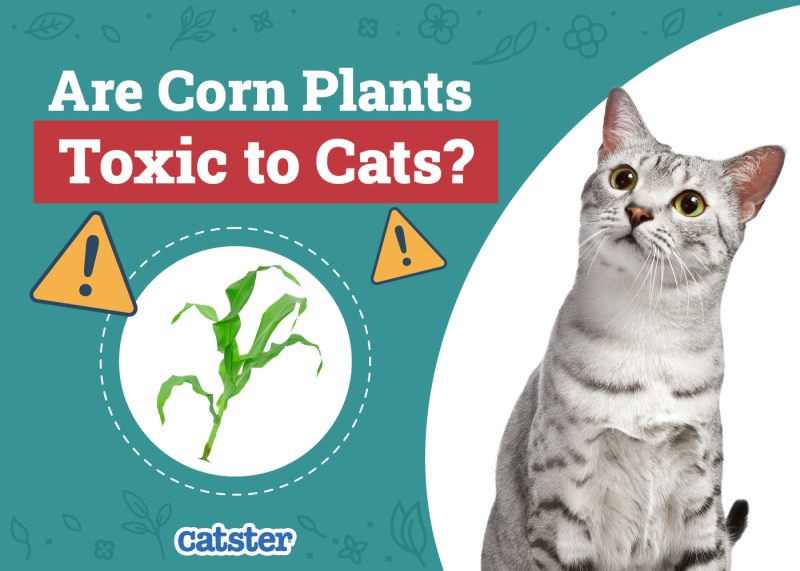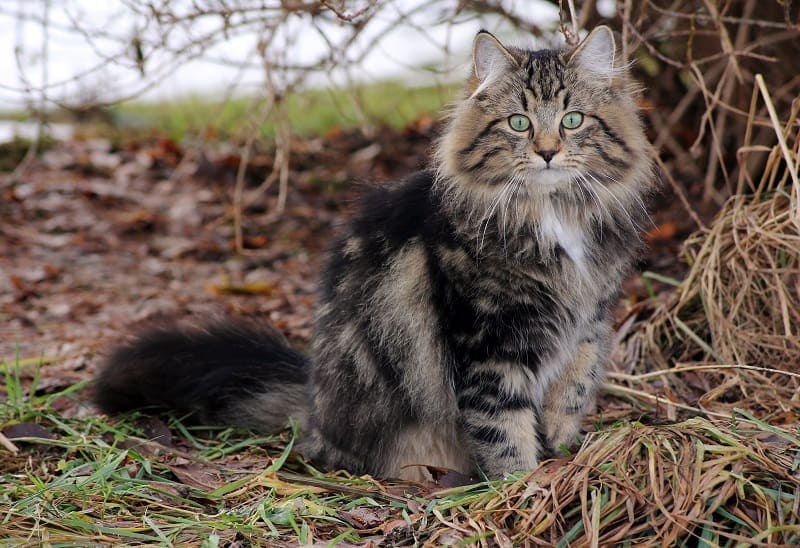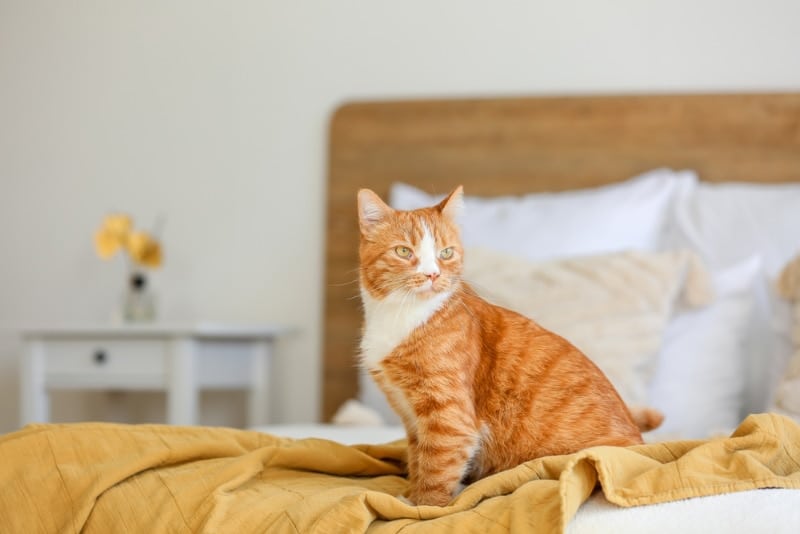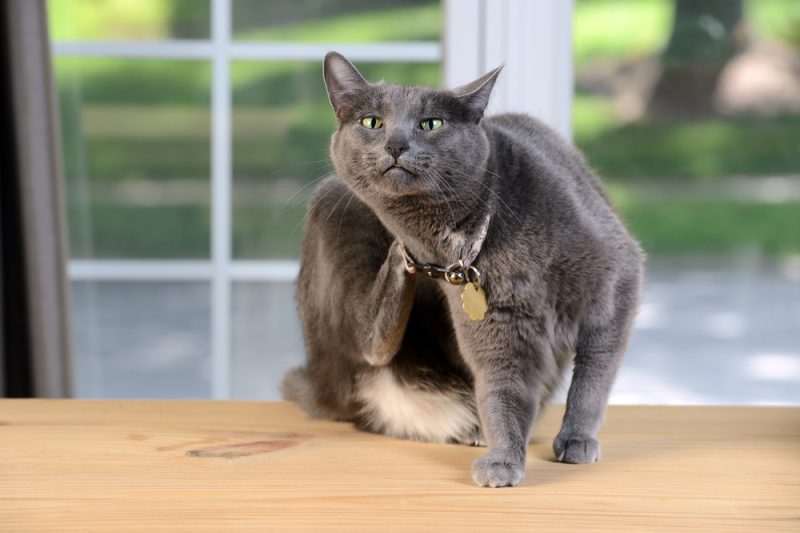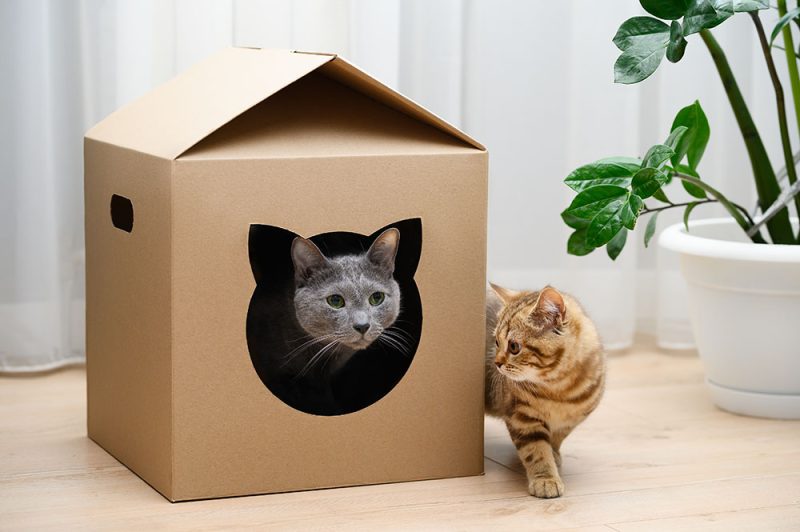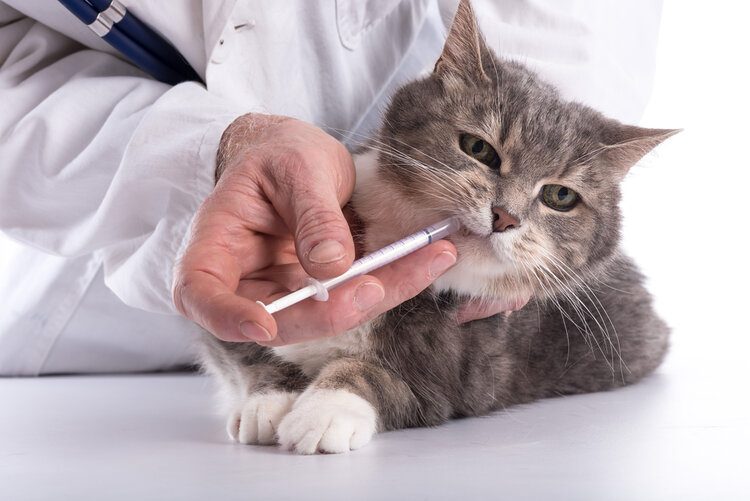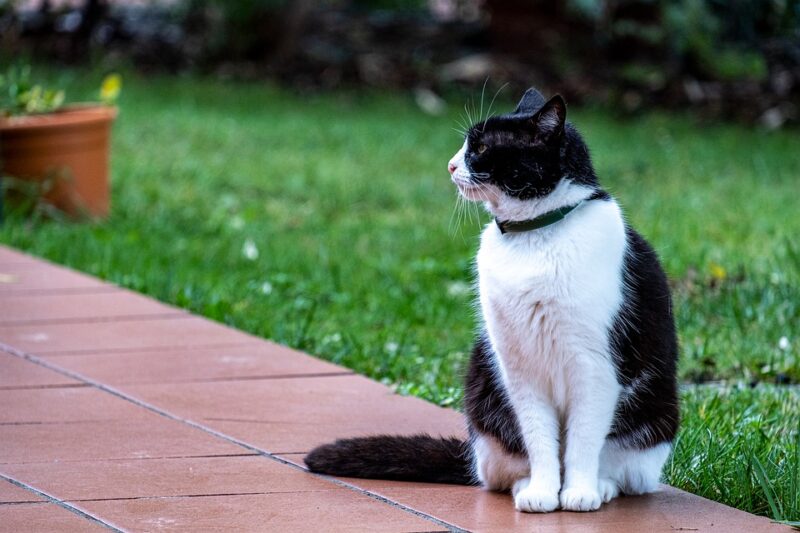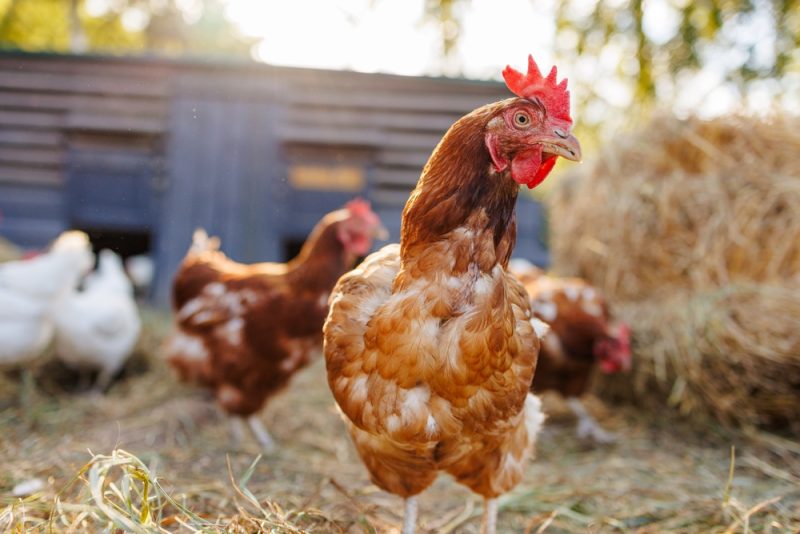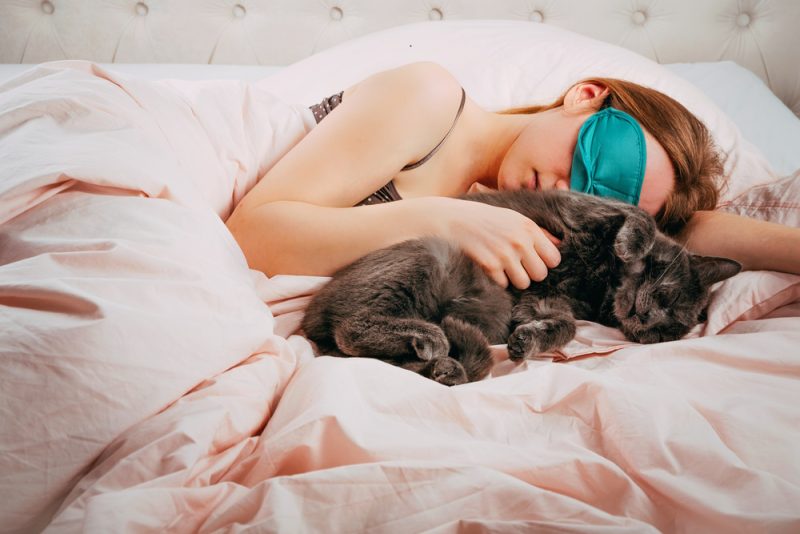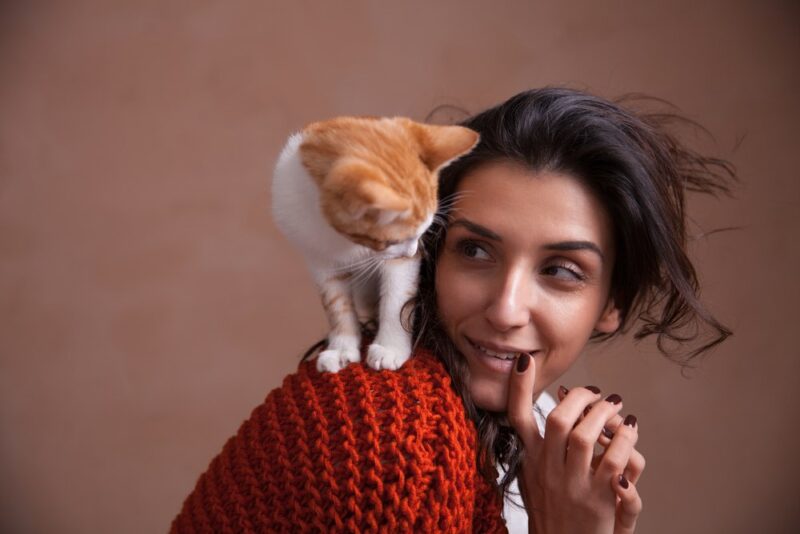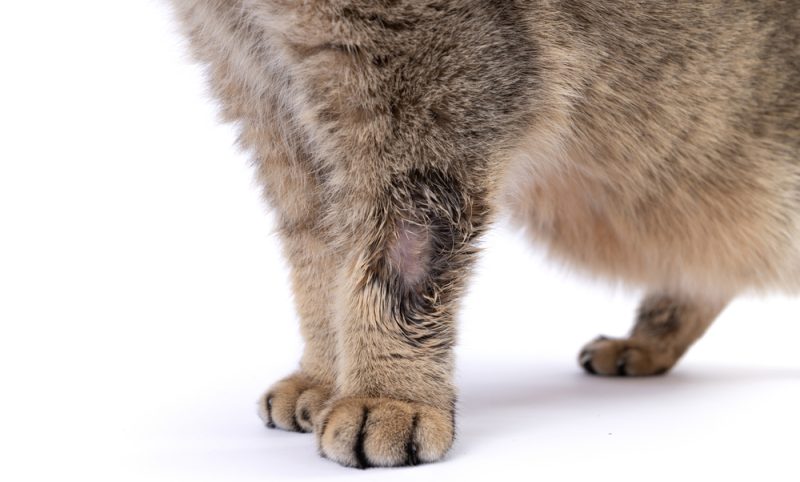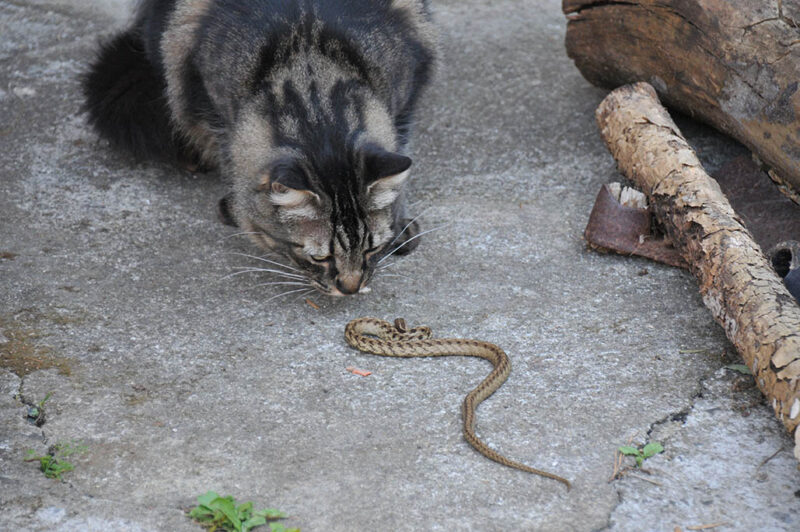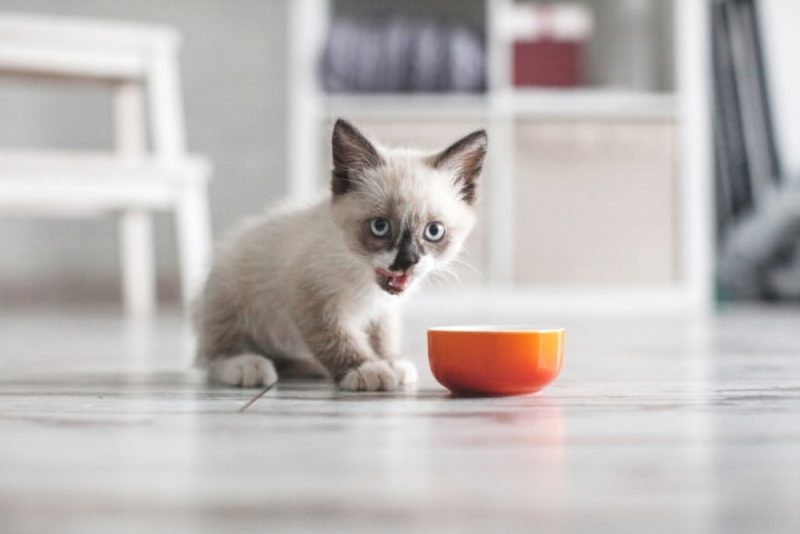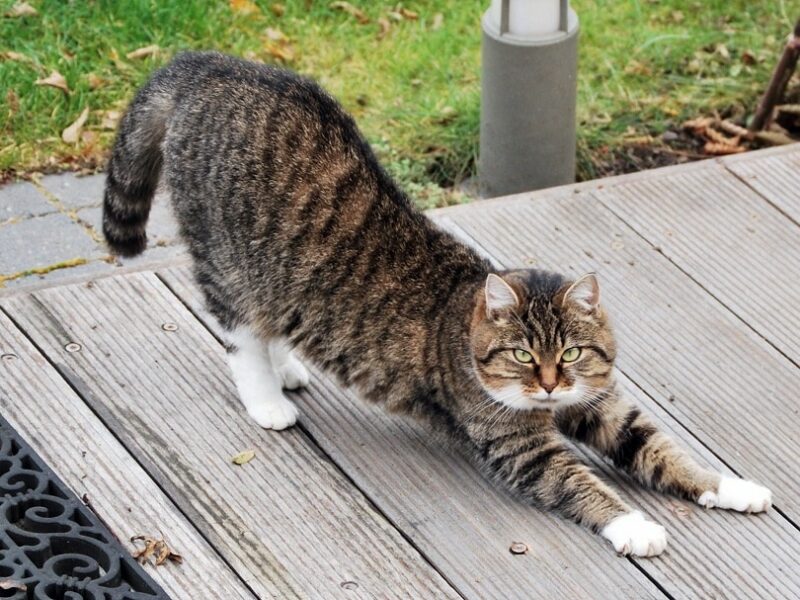Peas may be one of the most disliked childhood vegetables, but these little green legumes are packed full of healthy nutrients, including protein. In fact, pea protein powder is a common alternative for plant-based individuals to use in their post-workout shakes. Your cat might not be an aspiring bodybuilder, but you still might wonder if it’s okay for them to eat peas.
Yes, cats can eat peas. However, peas are not a complete protein for cats because they do not contain the essential amino acids that cats need. In this article, we’ll discuss why peas can be a healthy supplement for cats and how to incorporate these little green veggies into your cat’s diet. Read on to learn all about the power of peas!
Why Peas Are Healthy for Cats
Peas contain several nutrients that may be beneficial to cats, including antioxidants, fiber, and protein. Antioxidants, including vitamins C and E, help decrease inflammation in the cat’s body and strengthen their immune system. Fiber helps improve your cat’s digestion.
Cats thrive on high-protein diets, and peas have plenty to offer in this area. One cup of peas contains 8 grams of protein, as much as one cup of milk. Peas are also low in fat and fairly low in calories.
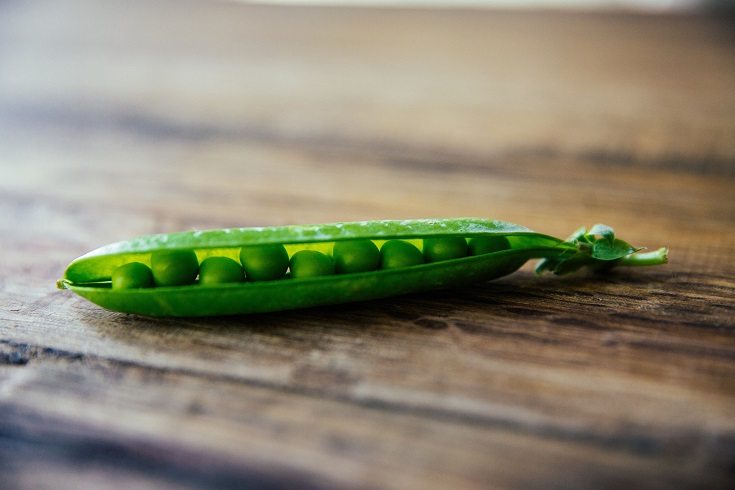
But Wait, Aren’t Cats Carnivores?
But wait, you might be thinking, I thought cats were carnivores who shouldn’t eat carbohydrates like vegetables? Can cats even digest and absorb the nutrients from peas?
Well, yes and no. Cats are true carnivores who need most of their nutrients from animal sources. Plant proteins simply do not contain all the essential amino acids that cats require to thrive. Keeping this in mind, pay attention to the ingredients listed in your cat’s food. If peas or other legumes are listed within the first three or four ingredients, this is not an ideal diet for a cat.
Cats still need most of their protein from meat and fish, but that doesn’t mean they can’t use pea protein as well.
How to Feed Peas to Your Cat
Cats can eat fresh, frozen, or cooked peas, although cooked are generally the easiest to digest. Cooking peas also makes them safer for cats to eat, as the uncooked version makes a potential choking hazard for your cat. If using fresh peas, make sure to shell them first.
Any kind of treat—whether it be peas or commercial snacks—should make up no more than 5%–10% of your cat’s total daily calorie intake. Most of your cat’s calories should come from nutritionally balanced commercial cat food. Treats and human food are not designed to provide all the essential nutrients your cat needs.
On average, most cats need to eat about 20 calories per pound of body weight each day. This number can vary by age, activity level, and metabolism of the cat. Overweight cats will also need to eat less, and vegetables like peas are often suggested snack alternatives for these pudgy pets.
When feeding peas to your cat, monitor for any signs of digestive upset, such as gas, vomiting, or diarrhea. If these occur, stop offering peas and consult a veterinarian if the signs don’t resolve quickly.
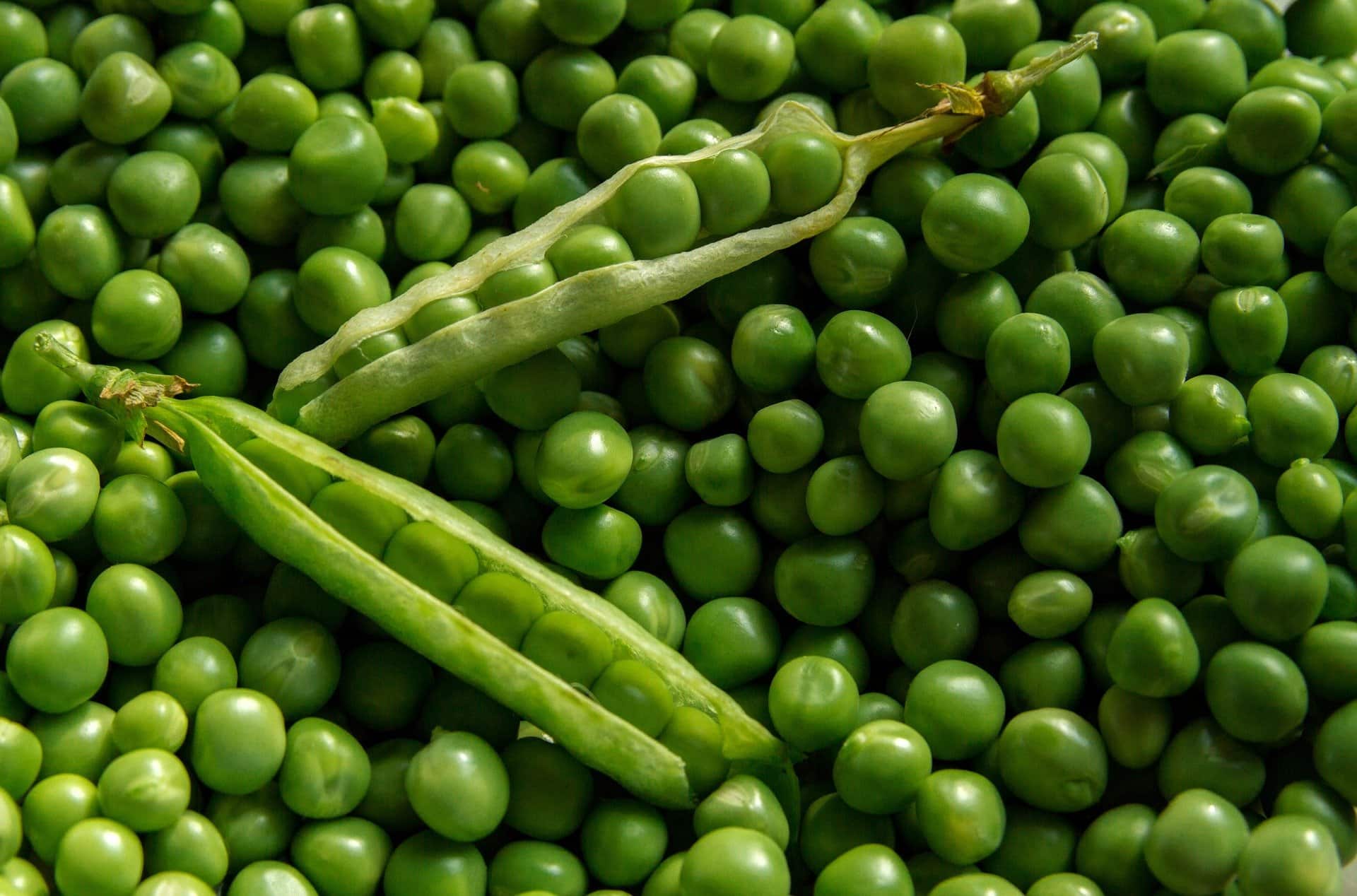
Image By: Pixabay
Peas In Cat Food
As we mentioned earlier, peas are often found in commercial cat foods. Out of necessity, dry cat foods must contain some form of carbohydrate or starch to help the kibble stick together. Because they’re cheap and easily obtained, these carbohydrates are generally grains like corn, soy, or rice.
However, cats can develop food allergies, sensitivities, and other conditions like Inflammatory Bowel Disease (IBD), just like humans. To help manage these conditions, cats often need to eat food with limited ingredients, including a protein and carbohydrate source they’ve never encountered before, known as a novel protein and carbohydrate.
Peas and potatoes are two potential novel carbohydrates used in novel and limited-ingredient pet foods. If you suspect your cat is having an issue with their food, consult a veterinarian. The vet may suggest a food trial with a limited-ingredient diet, such as Royal Canin’s Venison and Pea recipe.
Need veterinary advice but can't get to the clinic? Catster recommends PangoVet, our online veterinary service. Talk to a vet online and get the answers and advice you need for your cat without having to leave your living room — all at an affordable price!

 Conclusion
Conclusion
Before offering any new food to your cat, it’s always a good idea to check with your veterinarian. Peas are a safe and healthy food for most cats. However, every cat is an individual, and it’s always better to double-check first. Whether they’re safe or not, no human food can ever replace a diet specifically formulated for cats.
Even if your cat likes peas better than you might have as a child (or as an adult!), they should never replace your cat’s regularly scheduled food.
